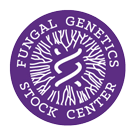Strain: Neurospora crassa
FGSC #1213
Reporting Genes: ser-3
Species: crassa
Allele: 47903
Alternate Strain Number: N103-35
Mutagen: UV
Depositor: DNP
Linkage Group: IL
Mating Type: A
Genetic Background: SL2
Opposite Mating Type: 1221
ref1: Perkins et al Genetica 40:247-278 1969, https://doi.org/10.1007/bf01787357
Genes
